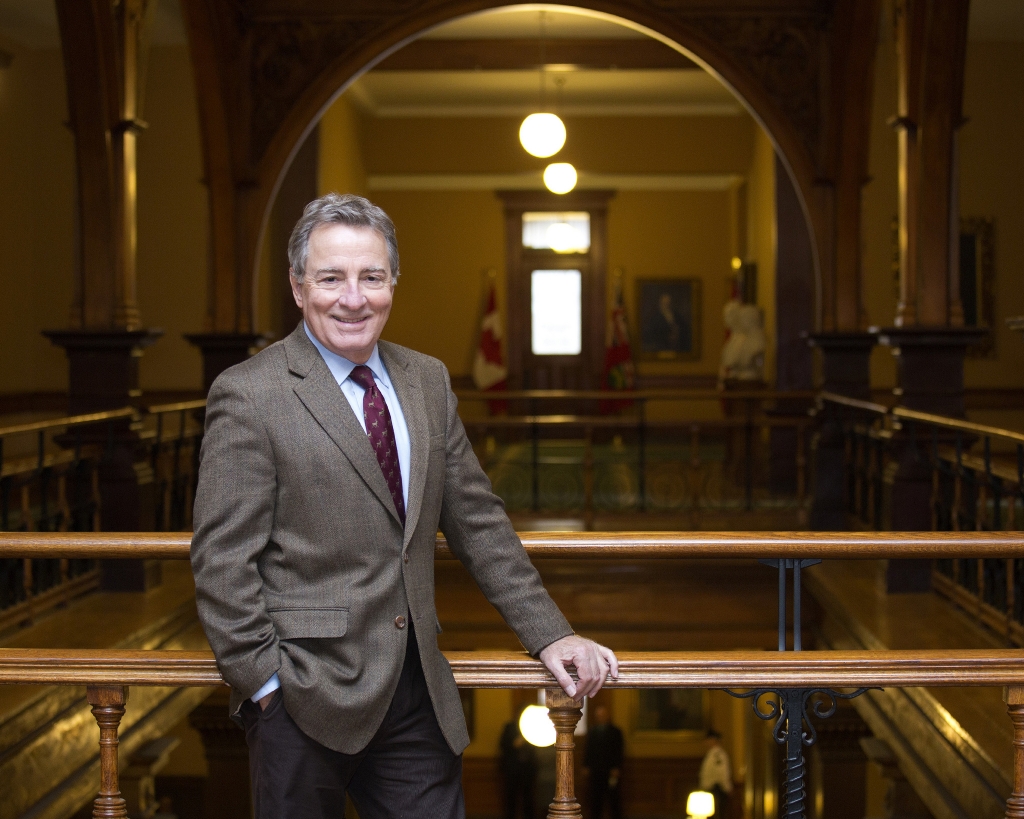David Zimmer was named Aboriginal Affairs minister in Ontario Premier Kathlene Wynne’s new cabinet. The former parliamentary secretary, a lawyer by trade, is MPP for a Toronto riding. Zimmer said he is planning a trip to northern Ontario sometime over the next month to meet with leaders and get of sense of the issues on the ground. The new minister spoke to Wawatay about some of the issues facing First Nations people in the province, including education, treaties and resource development. The following is an excerpt from that interview.
Shawn Bell
Wawatay News
Wawatay (WWT): Aboriginal Affairs is now back to its own ministry. Two things – what does that signify from this government, and what does that mean for people living in communities across the province?
David Zimmer (DZ): The fact that Aboriginal Affairs has its own minister, that’s a clear signal from the premier’s office that she expects a lot more time to be dedicated to the Aboriginal file. That’s a pretty strong signal from the premier that she expects serious work to be done.
What does that mean for the Aboriginal community? Well, it means the issues are going to get a whole lot more face time with the minister and the staff here, so that’s a good thing for Aboriginal people.
WWT: In terms of the issue of education funding, and the gap between federal funding on reserve and provincial funding off reserve, where do you see Ontario getting involved in that discussion?
DZ: As you and I know, there’s probably $2,000-$3,000 or maybe more difference between what the feds spend for on-reserve students and what the province spends for off-reserve students. That is simply not fair. The cumulative effect of that shortfall, the student ends up wearing that. We are going to push the feds to live up to their responsibilities. What I’d like to do, somewhere soon, is stand at a lectern along with my federal counterpart and say down the road, there’s a reserve and an Aboriginal student there who’s getting $3,000 less per year for his education. And down the street there’s another student getting $3,000 more. I want to look my federal counterpart in the eye and ask ‘why is that?’ How in the devil is that person going to answer that question in any way that sounds fair or makes sense? And I will ask that question, I will put it to him or her.
What we are going to do is work with First Nations, and we are going to push the federal government to live up to its obligations.
WWT: Idle No More has brought the issues of the Treaties back to the public’s attention. For you, what does it mean that Ontario has treaties with First Nations across the province, and what should Ontario’s role be when it comes to treaty discussions?
DZ: First of all, any and all treaties that the province of Ontario has with Aboriginal communities, whether its First Nations, Metis or Inuit, this province will respect those treaties in the spirit of the treaty and the letter of the treaty. I think that’s really important. I’m going to continue as the minister to make sure that all of the responsibilities in the treaties are lived up to, both in the letter of the law and in the spirit of the law.
WWT: Resource development, there’s a lot of issues to deal with. In your view, how much say should First Nations governments have when it comes to resource development on traditional territory?
DZ: Well it’s very clear in law that we have the duty to consult and so forth. We are going to do that. But it seems to me that if there’s a resource to be developed, and it happens to be on traditional territory, or even affecting their traditional treaty areas and traditional land, that the province has both a legal obligation and a moral obligation to consult with interested parties, and of course the Aboriginal community is an interested party. The way to do this is that everybody should have some skin in the game here, and be respectful partners of each other.
WWT: When you say ‘skin in the game’, are you talking resource revenue sharing?
DZ: There are resource benefits, there are revenue sharing issues; the important thing is that the parties sit down and talk about benefit sharing, revenue sharing, environmental issues, educational issues. When there’s a piece of economic development, there are so many spin-off effects of it. You have to get everybody together at the table and develop the resource in a collective way and make sure that everybody shares fairly in the rewards of the activity, and that might be benefits, a host of things.
WWT: What role do you see Aboriginal Affairs playing when it comes to these kind of decisions on resource development, on the Ring of Fire, on these big picture developments?
DZ: The ministry, what its really equipped to do, is to facilitate a whole lot of conversations and meetings, and to help the people get together and work through their issues. In some ways the ministry is a facilitator. Sometimes industry may come to us and say we have an idea for development, can you tell us who we should talk to and how we should get started. Maybe the Aboriginal community calls us with an idea for development and says can you help us connect with finance people, or technical people. So we bring the folks together and have a talk about it.
Gold has arrived.










Gold has arrived. Here in the north of Ontario we see vast streams of gold shimmering across the landscape as autumn is here and the the leaves are turning...
I am the product, evolution of many thousands of years as are you. I grew up on the land in the remote far north of Ontario following in the footsteps of my...